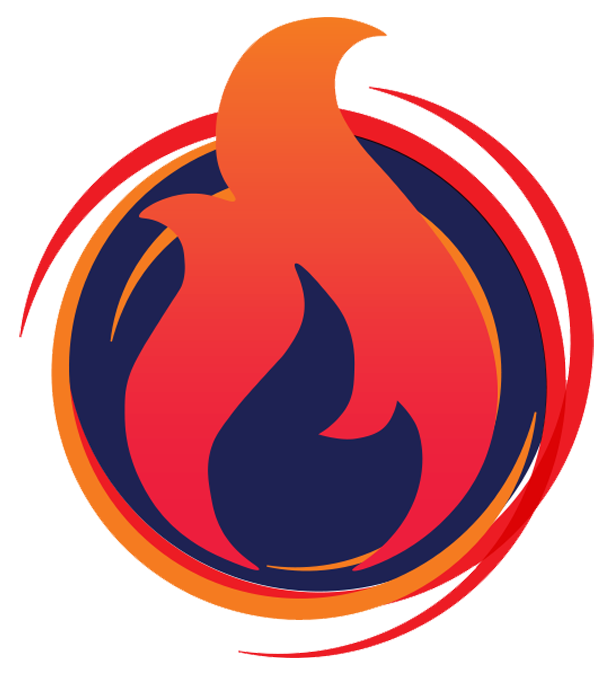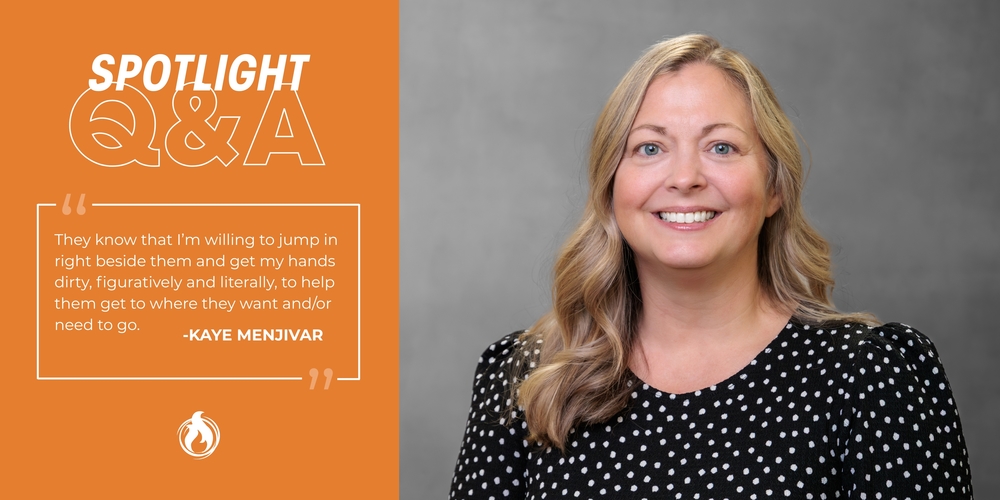Congratulations to Kaye Menjivar on being chosen as the October Certified Employee of the Month!
Menjivar is the digital learning & media specialist for Johnston County Public Schools (JCPS), and recently became an International Society for Technology in Education (ISTE) Certified Educator.
Born and raised in Johnston County, libraries have always been, and still are, Menjivar's happy place. She loves reading, and even when traveling, Menjivar enjoys seeing and being immersed in library spaces.
Menjivar also enjoys being in nature, hiking, trying new recipes from Pinterest, and being active in her church. She cherishes the rare moments when her family, which includes 2 sons, 1 daughter, 1 grandchild, and their dog named Luna, are together.
In the Spotlight Q&A, Menjivar shares her journey into education, her vision for the future, and leading with a servant's heart.
What inspired you to pursue a career in teaching?
To be completely honest, I did not really think about being a teacher when I was younger or when I was in college. I majored in English at East Carolina University because literature and writing have always been a passion of mine, and I just really wanted to immerse myself in those two things during my undergraduate studies.
It was actually my brother who suggested that I should consider teaching. And so I did. Looking back now, I can definitely see that this was the path intended for me. Sharing my passion while serving others in a multitude of ways over the years has been a truly rewarding experience.
What lessons has the profession taught you about education, students, and yourself?
Oh man, I’ve learned so much over the past 20+ years and still feel like I have so much left to learn. I think that is one of the things I love best about this profession. I don’t believe educators ever really have that ‘I have arrived’ moment where you feel like you’ve got it all figured out and you can just coast to retirement.
Teaching and learning are constantly evolving because everything else in the world is constantly evolving, so effective teachers really must embrace and lean into their identity as lifelong learners. And that, I believe, is probably one of the greatest things we can model for our students.
There is so much inherent vulnerability in the learning process, and you have to be willing to step into unfamiliar waters knowing there’s a possibility you might struggle or fail. Learning to embrace that vulnerability has been a process for me, but it has also helped me be a more compassionate guide, companion, and servant-minded leader for those I work with, whether it be students, librarians, teachers, families, or anyone else.
As an educator, building strong relationships with your students is paramount. What approaches do you use to create trust and bond with them?
I really love veteran educator Rita Pierson’s idea that “Kids don’t learn from people they don’t like.” I don’t think this means we’re supposed to be our students’ besties, but what is important is that we take time to really see students as people, and for the wonderfully complex and unique individuals they are.
When students, or teachers for that matter, feel that they are really seen and heard, that the learning is something we want to do with them and not to them, then more often than not, they’re all, or mostly, in.
This is why it’s always been important to me to build in time to have fun, to make those personal connections, and to allow others to see that I’m human, too.
I also want them to know and see that I’m willing to jump in right beside them and get my hands dirty, figuratively and literally, to help them get to where they want and/or need to go. These things build trust, which I think we can all agree is important to any strong relationship.
Describe a memorable teaching experience that had a lasting impact on you. What made it special, and what did you learn from it?
In my first year as a 6th-grade language arts teacher, I had a student, a young lady, who was repeating the 6th grade because she had not passed her reading EOG the previous year. I remember recognizing how difficult that experience of repeating the grade was for her. She didn’t have any friends in class, and she was clearly more ‘mature’ than her classmates. The content was not easy for her, but she worked hard.
At the end of the year, when she learned that she had passed her reading EOG, she cried literal tears of joy and relief, and I have a strict ‘no one cries alone in my presence’ policy, so we cried those tears together. But what was so profound for me was the recognition of the worry about whether or not she could do it that this young girl had been carrying throughout the whole school year. She never let it show, but that emotional release at the end was proof of how big it had been looming within her.
Since then, I’ve tried very hard to remember a couple of things: no one wants to be a failure, and outside appearances are only the tip of the iceberg. This is why I believe taking time to build personal relationships is so very important, because even when someone may not be ready or willing to open up and show you all the inner workings, they may be willing to walk with you a ways if they suspect you care, and even further if you can make them smile a little.
Looking ahead in your career as an educator, what goals would you like to accomplish in the field of education?
It always stands out to me when I read the findings of various education-related research studies conducted throughout the country, where students report that after graduating from high school that they do not feel prepared for the ‘real world’ or what comes next after high school. I find that troubling.
There are so many skills today that our young, and old, people need in order to contribute positively and effectively to society, skills that will help them stay safe and engage in respectful discourse in our digital landscape, that will help them even distinguish what is real from what is fake.
That’s not even mentioning the skills of budgeting in increasingly difficult financial times. There are so many ‘other’ literacies our students need: digital, media, and financial. Few of these are tested, but all of these will make or break folks in our world today.
This is what I would say my goals stem from: a desire to equip students and our communities at large with skills that will prepare them to thrive in our digital world. I would like to help and support all educators in learning how to embed these important skills in all content areas and empower students to lead by modeling these skills in their own circles of influence.
This year’s theme is Forward, with a focus on our North Star - Student Achievement and Academic Growth. How do you plan to carry this theme into your classroom and continue building on your award-winning strategies?
I plan to continue focusing on the same North Star I’ve built my whole career on thus far: a servant’s heart focused on the good of students and people. I look Forward to continue learning and grow as an educator, sharing what I learn with others and supporting them in their journey, and striving to make sure those I work with know how much I value them, so maybe they’ll be willing to walk a ways with me to continue doing great things for students, teachers, and families throughout Johnston County.

